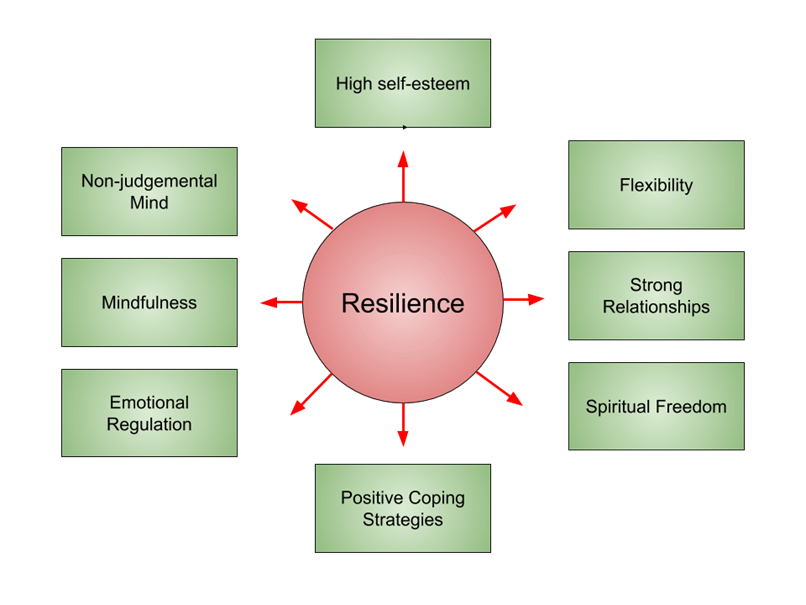Positive psychology deals with the study and strengthening of the positive aspects of human life and mentality: issues of happiness, contentment, meaning, optimism, hope, perseverance, resilience, mental well-being, and other important positive aspects of human life and experience. Its founder is dr. Martin Seligman, although well-known psychologists and Rogers - Theories of human well-being have talked about this, but without empirical research. Seligman has thus expanded the field to explore positive emotions and processes, focusing on exploring happiness and aspects that promote an individual’s personal growth and development based on his or her individual strengths and abilities. In this way, positive psychology promotes the well-being and quality of life of the individual.
Thus, positive psychology creates new insights into the importance of positive aspects of life for quality of life and mental and physical health; on the other hand, it develops methods and strategies to strengthen life skills and improve the quality of life. However, it should be emphasized that positive psychology is not a "happy psychology" that would strive to create constantly happy people who will always smile. Sickness, distress, pain, loss and trauma are a necessary companion of human life, as well as fear, anger, anxiety and other less pleasant emotions, as well as various mental distresses, problems and disorders.
Positive psychology is based on important findings:
What is resilience?
All individuals who show a greater degree of personal resilience face with life changes more easily. Resilient people respond to those change with healthy and positive adjustment while remaining physically and mentally healthy. In doing so, they activate the ability to learn from these experiences, accept new information, adjust their thoughts and behaviors, and incorporate all of these new lessons into later life. This is also confirmed by Darwin's idea of evolution that not the greatest and strongest survive, but those with the greatest ability to adapt.
Therefore we can sai that resilience is the ability to adapt positively and restore personal balance during life's trials and various negative experiences. It activates us to equip ourselves with our own internal and / or external sources of power and to tackle problems in the right way by self-regulating, adapting, learning, changing and / or going beyond existing patterns.
Elements Of Emotional Resilience
Emotional Resilience has three building blocks – these are the pillars on which we can build resilience or work on improving it. Also referred to as the three dimensions of emotional resilience, the three elements include:
1. The Physical Elements
Involving physical strength, energy, good health, and vitality.
2. The Mental or Psychological Elements
Including aspects like adjustability, attention and focus, self-esteem, self-confidence, emotional awareness and regulation, self-expression, thinking, and reasoning abilities.
3. The Social Elements
Including interpersonal relationships (work, partner, kids, parents, friends, community, etc), group conformity, likeability, communication, and co-operation.

Source: https://positivepsychology.com/emotional-resilience/
Nine Pillars of Resilience
The nine-pillars resilience model connects nine factors from three areas of our lives. The first three pillars relate to the area of relationships we have with ourselves, with other people, and with “something bigger than me”. The second area concerns our physical, emotional and cognitive balance. The third area is the way we operate in the world.
The relationship with oneself is an important foundation. It represents proper self-care, connection with oneself, a positive view of oneself. It is important that we are supportive, compassionate, self-respecting, accepting and loving ourselves. When we are accepting of ourselves, we do not judge ourselves, this promotes the ability to self-calm. If we are overly self-critical, we condemn ourselves, our ability to reassure ourselves diminishes.
The ability to establish and nurture connected, intimate relationships with others and gain support. Supportive relationships help us develop and build confidence in ourselves, in others. This pillar has a significant impact on the sense of a "safe world". It also includes setting healthy, clear, consistent boundaries.
Attitude to something “bigger than me” can represent our involvement, association with community activities, volunteering, charity, or our spiritual practice. This pillar gives us meaning, hope, direction, affects the reduction of feelings of loneliness, alienation.
Physiological balance represents the ability to relax, calm down, not react too quickly and excessively.
Cognitive balance, on the other hand, includes a positive attitude and beliefs, the ability to control our thoughts, to focus.
Presence represents the ability to be “here and now”, in touch with ourselves and the environment, not occupied with the past or with worries, fears about the future.
Flexibility represents the ability to adapt appropriately to change, learning from past experience. Part of this pillar is also the creativity associated with the flexibility of our outlook on life.
Strength refers to the ability to engage in an activity, do things, persevere. It involves courage and assertiveness to present and represent our arguments, boundaries, put our ideas into action, achieve goals. It also includes the ability to plan, think strategically, make decisions. This pillar promotes a sense of control and self-confidence.
The model of the nine pillars of Resilience represents an integrated approach for strengthening the protective factors that, in complementary action, provide us with optimal actions in nowadays societal challenges.
Resilience as such can be defined as multi-layered, as such it is also used most successfully in the processes of dealing with crisis events. Resilience is thus defined systemically and interactionally, since in this process it is about successful adaptation despite problems (crises, traumatic events, losses, failures, illnesses, etc.), about the ability to overcome problems and stress so that the individual can function effectively and finally bridging and overcoming obstacles to achieving life success. Strengthening in the field of personal and emotional flexibility is therefore an important personality component of an individual who, in today's time full of challenges, is increasingly faced with various crisis events.